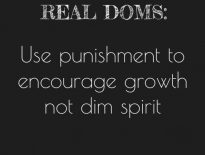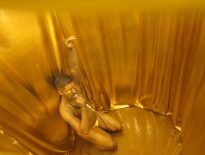Kink Psych: How Creativity and Our Sexuality Are Intimately Connected
For us to move ahead in life, we must tap our ability to “come up with new ideas and insights.
How can we shake up the way we think?
Creativity has been pegged to conducive environments, perfect collaborators, personality traits, serendipity, and even spiritual muses. While research psychologists are interested in increasing innovative thinking, clinical psychologists sometimes encourage patients to use artistic expression as a way to confront difficult feelings.” (1)
What Is Creativity?
“Not all creative people are alike, which makes defining creativity a challenge and assessing it a monumental undertaking.
The traditional psychological definition of creativity includes two parts: originality and functionality.
“You can’t be creative unless you come up with something that hasn’t been done before,” says psychologist Dean Keith Simonton, Ph.D., of the University of California, Davis. “The idea also has to work, or be adaptive or be functional in some way; it has to meet some criteria of usefulness.
“But the study of creativity by psychologists, active since the beginning of the 20th century, has taken that definition and expanded it, complicated it and questioned it.” (2)
Where does creativity hide?
Which Boosts Creativity? Love vs Lust
“Love and creativity are intimately connected. Many lovers have expressed their love and talent through creative display, sometimes to embarassing results! But what about lust? Does lust drive someone to the same heights of creativity?
According to Jens Forster and his colleagues, “love and lust lead to two different ways of perceiving the world”.
Forster and his colleagues see romantic love as having to do with dreamy wishes and long-term goals of attachment. They see lust having to do more with the “here and now” and the desire to engage in sexual activity. Based on this view, they predicted that love’s focus on the long-term would enhance holistic thinking and creative thought, whereas lust’s focus on the present would enhance analytical thought.
In a first study, they had people either imagine a long walk with their beloved partner (or ideal partner if they were single) while trying to experience their love for this person, or imagine a situation involving casual sex with a person they were attracted to but not in love with. Then, participants attempted to solved creative insight problems as well as four analytical logical thinking problems taken straight from the GRE.
They found that those primed with thoughts of love had the highest levels of creative insights (those primed with lust had the lowest), whereas those primed with thoughts of lust had the highest levels of analytical thinking (those primed with love had the lowest).
Conclusion by the researchers: “Love enhances global processing and creative thinking whereas sex enhances local processing and analytic thinking. Thus, contrary to the intuitive notion of creativity and analytical thought as fixed human capacities or stable personality traits, they can easily be changed by subtle cues in the environment or by mere thinking about certain situations.”(3)
Creative Types Have More Sexual Partners
“Creative people are fun. Creative people are likeable. But many creative minds are unorganized and sometimes deficient in handling complex logic.
Some creative minds are highly analytical too, although the processing was sort of in the back and you don’t see it. Creative people are more social than others. Here’s a case in point.
Psychologists at the University of Newcastle upon Tyne and the Open University found that professional artists and poets have about twice as many sexual partners as other people. The study also shows that the average number of sexual partners increased as creative output went up. So the more creative you are, the more sexual partners you should have. You tell me if this true. Now I understand so many people wants to be a creative director.
More on creativity and sex drive. The desire to be creative or feel creative, whether expressed in music, industrial design, art, fashion or photography or film, coexists with the primal urge to commit the sex act, and other layers in between.
It is like onions that we have many layers.
What if your desire for sex is weak, does it mean you are less creative than others? If you buy the above argument, then this should the case.
When sex is suppressed in some cultures, does this in effect force the libido up into “higher” forms, and thereby further enhance creativity? I don’t know.
I believe our creative motivations are often based on some of our most primal passions, such as joy, fear, anger, love and lust. In an article Creative Juice – A Dozen Key Lessons for Creative Dreamers, Suzanne Falter-Barns quotes Deepak Chopra: “Creativity is ultimately sexual – I’m sorry — but it is!”
Love and lust make us think differently in that it triggers global processing, which in turn promotes creative thinking. Love and lust are good for creativity. (4)
Creativity Is Ultimately Sexual
“The title comes from an article by entrepreneur and coach (and performer) Suzanne Falter-Barns, who quotes what Deepak Chopra said in a lecture she attended:“Creativity is ultimately sexual – I’m sorry — but it is!”Other people agree.
Writer Eve Ensler has commented that she believes “sexuality is the greatest gift we’ve been given.“Its energy is the basis of creativity, love, ambition, desire, life. Sexuality has gotten all these bad raps because it’s so powerful.”[Quote from the book Positive Energy by Judith Orloff.]
Falter-Barns says that when she spent a few months involved in a production of ‘Chicago’ – “a show that was all about the bump and grind” she “really began to see the deep connection. When I am performing or writing, and things are really going well, I find myself slipping into a wonderful, surging sea of release. The pure stream of expression coming out of me is so unscripted, free and authentic, that I could stay right there for hours, doing only that. I feel brilliant and strong, and wonderfully alive – as if I’m just exactly what I should be.“ And, of course, the same is true about sex. Communication happens at high, peak levels. It’s all perfectly sacred and profound, yet – at the same time – the most normal thing in the world. I am happy and complete.”
She lists some parallels she has found between sex and creativity:
“It’s all about surrender. The more you can get out of your head, and simply let go, the further into your process you will go. And the grander the result will be.
“The real communication is entirely beyond words. When an actor gets up to deliver a monologue, or a poet composes a sonnet, the words take you only half the way there. The rest happens between the lines, in the emotional truth with which it’s delivered.
Same with sex. And without that emotional truth… well, it’s all a lot of hooey.“The spiritual usually comes into play. My belief is that all of this gets handed to us on that big Universal platter. And your choice is to accept or decline.
So truly authentic creative or sexual endeavors can’t help having a mystical or divine underlayer.“You can’t do it unless you really, truly want to. OK, sure. You can fake your way into bed with a relative stranger, or stumble along writing a book you don’t care about. But you’re not going to sustain it. The sex will be cheap and easy; the manuscript will sputter and die.“Why? Because you don’t really, truly want to be there.”
In her article Creative Juice – Painter Cecily Brown has described her work: “I’m reluctant to say I want to capture the sensation of sex, but in a way, I want to transcribe the feeling of heat inside your body, inside your mouth, the feeling of skin on skin, and flesh and graspings.“The subject is perfect for painting; painting is a metaphor for sex. So I want it caressing; I want it brutal and tender and everything at once.”
Virginia Woolf once commented, “The older one grows, the more one likes indecency.”Maybe we could use more indecency and the power sex in our creative work.” (5)
Creativity Through Kink
“In December of 2013, Mollena Williams received an OK Cupid message. It was complimentary:
“Wow — your profile is great.” It was confident: “I am an artist, very successful (probably member of the top 10 or 20 in my genre in the world).” It was polite, signing off with “warm wishes.”
But something was a bit out of the ordinary, speaking to its author’s interest in domination and submission. The central desire? “I would like to tame you.”
The writer was Georg Friedrich Haas, whose powerfully emotional, politically charged music and explorations of microtonality make him one of the world’s leading composers.
His work had brought widespread acclaim, but his personal life was troubled, with three failed marriages in his wake, when he met Ms. Williams, a writer and sex educator who specializes in alternative lifestyles.
Shortly after he messaged her, the two began a relationship and were married last fall.
All music is influenced by its makers’ personal lives and, in many cases through history, their grappling with sexuality.
Tchaikovsky’s struggle with his homosexuality helped create music of agonizing longing.
The Austrian-born Mr. Haas, 62, a music professor at Columbia University since 2013, has recently been increasingly open about the unusual nature of his marriage, which he says has dramatically improved his productivity and reshaped his artistic outlook.
Mr. Haas has chosen to speak up, both because Ms. Williams-Haas’s sexual interests are widely known (her blog, The Perverted Negress, is not shy about kink and bondage) and because he hopes to embolden younger people, particularly composers, not to smother untraditional urges, as he did.
The fundamental feature of their relationship is not obviously sexual, Mr. Haas and Ms. Williams-Haas, 46, said in an interview.
“It’s the fact that I need someone who is with me when I work.”
While the terms they negotiated at the start of their relationship do not prevent her from pursuing her own professional and personal life, Ms. Williams-Haas devotes much of her time to supporting the work of a man — “Herr Meister,” she has nicknamed him — for whom a “good day” is one in which he composes for 14 or 15 hours.
“She makes my life as comfortable as possible,” Mr. Haas said.Ms. Williams-Haas, who described the situation as feminist because it is her choice, said, “I find intense fulfillment in being able to serve in this way.”
She conceded the discomfort many may feel with a black woman willingly submitting to a white man. “It’s a struggle to say, ‘This is genuinely who I am,’” she said. But she added, “To say I can’t play my personal psychodrama out just because I’m black, that’s racist.”
Mr. Haas said that he felt liberated after what he described as a lifetime’s and three divorces’ worth of suppressing what he once considered “devilish” desires. The change has altered his music in ways both quantifiable and more ineffable. He said that his productivity had roughly doubled since meeting Ms. Williams-Haas, which will delight his fans.
And while his work has not lost its moody, queasy darkness, he identifies a new hopefulness in it. His 2015 opera “Morgen und Abend,” for example, ends with a scene of a dead father unable to communicate with his living daughter. “Before I met you,” Mr. Haas said to Ms. Williams-Haas, “this end would be very desperate. Now this end is full of ‘Yeah, we have to die, we have to leave, but the life of love still remains.’”
Mr. Haas contrasted the effect on his style to the struggles of Schubert and Tchaikovsky with homosexuality. “The most important step,” he said, “was to accept, yes, I want to be dominant. Yes, I love to play with pain.” These are matters he had long considered, even if unconsciously, in his music, he said.
His exacting, virtuosic style gives a whiff of the dominant-submissive to the composer-performer relationship. The same can hold true for the composer-audience relationship, particularly in works like Mr. Haas’s third string quartet, “In iij. Noct,” 50 minutes performed entirely in the dark.
“The submissive person who is willingly giving over his or her agency can be getting precisely what he or she wants,” Kevin McFarland, the JACK’s cellist, said in a telephone interview. “In the darkness there’s a sub space that the audience can enter.”
Mr. Haas believes an upcoming work for choir and chamber orchestra, built from sketches performed for the first time at his wedding to Ms. Williams-Haas, is among the best pieces he has written.
“Maybe it’s easier now to do what I want because I am not disturbed by unfulfilled desires,” he said.
His wife compared him to the great blues singers, whose pain gained meaning in the act of expressing it. “Now,” she said, “he’s sharing the pain.” (6)
How To Use Your Sexual Energy To Arouse Your Creative Genius
Our sexual energy is our creative, life-force energy. We all have our own unique genetic blueprint. We come into this world with gifts and talents. Our purpose is to channel these through the one-of-a-kind vehicle that we are. Here’s how:
#1: Have sex. You can use your sexual encounter to amplify the power of that energy even if it’s just solo sex. You’ll tap into your sexual power and infuse it into everything that you do.
#2: Create something. Before you do, I suggest using this short visualization
- Drop yourself into a meditative state.
- Focus on elongating your breath to at least a four-count inhale and a four-count exhale.
- Clench and release your PC (pubococcygeal) muscle a few times.
- You ought to feel a stirring in your genitals. Keep clenching and releasing.
- Now see in your mind’s eye a project you are working on.
Visual your pelvis and genital area are filled with radiant light and energy. Imagine shooting that substance out into your project, wrapping and infusing it. Enlivening it.
#3: Best of both worlds. Have Sex & Create Something
- Unleash your excitement on your lover. Or yourself.
- Use your orgasms to unleash your creativity by visualizing your “project”.
You can use this whenever you need to get your creative flow going. Have a sex date with yourself or another. Then get to work. (7)
What do you think I did before I wrote this article? I don’t do coffee. I do orgasms!
☆☆ QUESTION FOR YOU: What inspires your creativity? How does creativity influence your BDSM lifestyle and vice versa? Share your story, comments, insights below!! ˙·٠•●♥
❤️❤️❤️
LittlegirlNY
PS: If you enjoyed this article, you are welcome to send me a friend request or follow me.
✿✿✿✿✿✿✿✿✿✿✿✿✿✿✿✿✿✿✿✿✿✿✿✿✿✿✿✿✿✿✿✿✿✿✿✿✿✿✿✿
Citations
1 Creativity | Psychology Today
2 Considering Creativity–What exactly is creativity?
3 Love, Lust, and Creativity | Psychology Today
4 Sex And Creativity. Is There A Connection? Study Shows Number Of Sexual Partners Correspond To Creative Output. | Idris Mootee
5 Creativity Is Ultimately Sexual
6 A Composer and His Wife: Creativity Through Kink – The New York Times
7 Sexual Energy and Creative Genius – mindbodygreen







